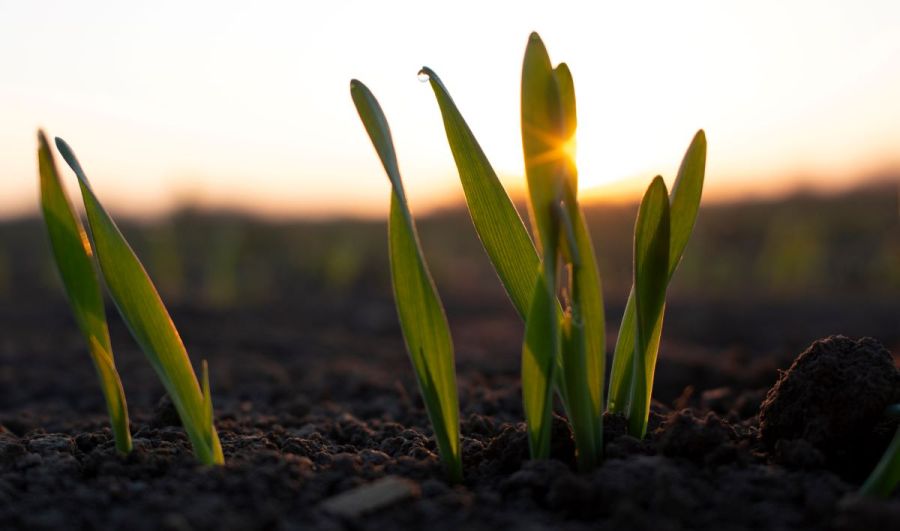Pitched as the next generation of seed treatment, Surge is promising to make waves in crop establishment by combining bacillus bacteria with a key micronutrient. CPM takes a closer look.
“This is a unique formulation which delivers a symbiotic result.” ROBERT HAWKIN
By Janine Adamson
While it’s not the first bacillus-based seed treatment to come to the UK market, by combining the bacteria with manganese, it’s hoped new product Surge will prove a step up when it comes to boosting crop establishment and early plant development.
That’s according to Robert Hawkin, director of Fielder, the plant nutrition company behind the innovation. He says Surge is not only novel, but the ‘next generation’ of seed treatment.
“Combining bacillus with key micronutrient manganese offers a symbiotic relationship that’s yet to be explored as a seed treatment, until now,” states Robert. “The purpose is to enhance germination and early seedling growth while meeting the demand for sustainable, soil-health boosting products.”
RIGOROUS R&D
Taking a look at Surge in greater detail, the product began life around five years ago and has been undergoing rigorous testing in the UK since. Contributing to the seed treatment’s design has been Crop Intellect’s Dr Apostolos Papadopoulos, an expert in bacillus.
“Surge seed treatment incorporates bacillus-based bacteria as a biological component designed to support early crop establishment and overall plant health. Bacillus species are naturally occurring, spore-forming bacteria that colonise the root surface on germination and form a symbiotic relationship with the plant,” he explains.
Apostolos adds that in Surge, bacillus supports crop development in various ways: by promoting early root development for better access to water and nutrients; enhancing nutrient availability, particularly phosphorus, through solubilisation processes; and supporting plant resilience to stress conditions by improving root-soil interaction and stimulating natural defence pathways.
“It contributes to more uniform emergence, improved vigour, and potentially more stable yields, especially under sub-optimal growing conditions.”
When compared with similar products currently available in the UK market, Surge should stand out, argues Apostolos. “Unlike many off-the-shelf microbial seed treatments, which are often developed and tested under different agronomic or climatic conditions, Surge’s bacillus material has been trialled in the regions where it’s applied, ensuring it delivers measurable benefits in local soil types, cereal varieties, and farming systems.”
A further differentiator is that the bacillus in Surge has been evaluated for both physical and chemical compatibility with common seed treatments including fungicides and micronutrient coatings. “Because the bacillus forms robust spores, it remains viable on the seed for extended periods to ensure it’s effective at the point of sowing – a common weakness in many other biological formulations,” suggests Apostolos.
In fact, the shelf-life of the product is around 12-months with no pre-mixing involved prior to it going through a seed dresser.
But it’s the combination of bacillus with manganese which makes Surge a true innovation, highlights Robert. “This is a unique formulation which delivers a symbiotic result; it’s widely recognised that manganese is critical during crop establishment. Manganese activates the enzymes involved in photosynthesis, nitrogen metabolism, and the production of essential compounds such as chlorophyll and lignin.
“As such, trials indicate that when assessed against a comparable competitor product, Surge offers a 7% yield uplift. If we compare with an untreated crop, this quite literally surges to a 20% yield improvement,” he comments.
In terms of application, Surge can be used across a range of crops including cereals, legumes, oilseed rape, maize and grass. Robert believes aside from tangible crop benefits, because the product solubilises phosphorus in the soil and fixes nitrogen, it should also align with growers who are seeking to reduce their environmental impact.
SUSTAINABILITY GAINS
Apostolos agrees: “The use of bacillus aligns with regenerative agriculture and sustainability goals because it enhances biological processes in the soil while reducing dependency on synthetic inputs. This makes bacillus-based products valuable tools for both productivity and sustainability,” he adds.
Scarborough-based mixed farmer John Stonehouse has been trialling Surge on his farm for the past two years. This season, he’s undertaken a series of field-scale trials on a crop of spring barley, comparing treated and untreated plus with and without different foliar applications.
He says during the dry conditions this spring, the seed treatment has delivered a significant uplift in crop rooting. “I believe roots are the building blocks of a crop so prioritising their development is therefore a key driver for me. When we dug individual plants to assess the root mass this spring, those treated with Surge were apparent – I’d say around 30-40% more rooting.”
Prior to his trials with Surge, John hadn’t used bacillus-based products before, although he’s long been an advocate of Fielder’s phosphite biostimulant seed treatment, Kick-Off. He says he’s been converted. “Having seen the results, I’m happy to say it works.
“Equally, for those using Surge in a commercial scenario rather than trials, I believe there could be the potential to make adjustments to subsequent fungicide programmes. With a healthier plant from the off, it’s more likely to ward off disease naturally,” highlights John.
Using his own on-farm seed dresser, he says Surge was easy to apply. In fact, John believes the formulation is better than other seed treatment products currently on the market.
This article was taken from the latest issue of CPM. Read the article in full here.
For more articles like this, subscribe here.
Sign up for Crop Production Magazine’s FREE e-newsletter here.




